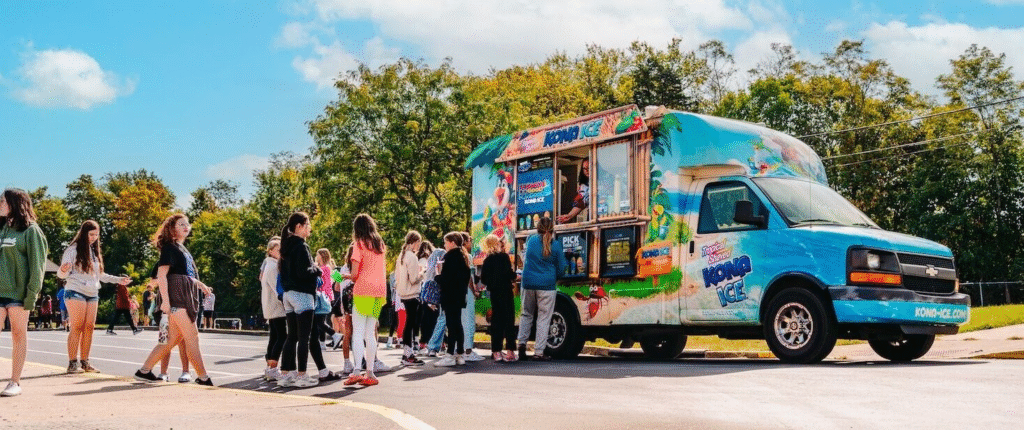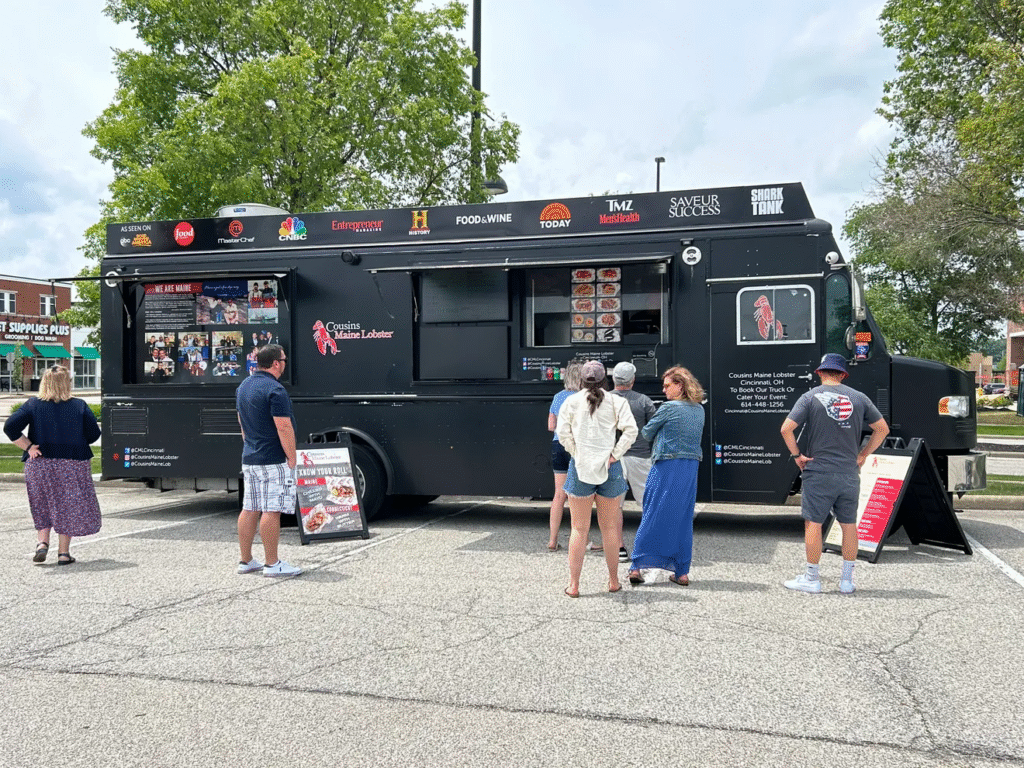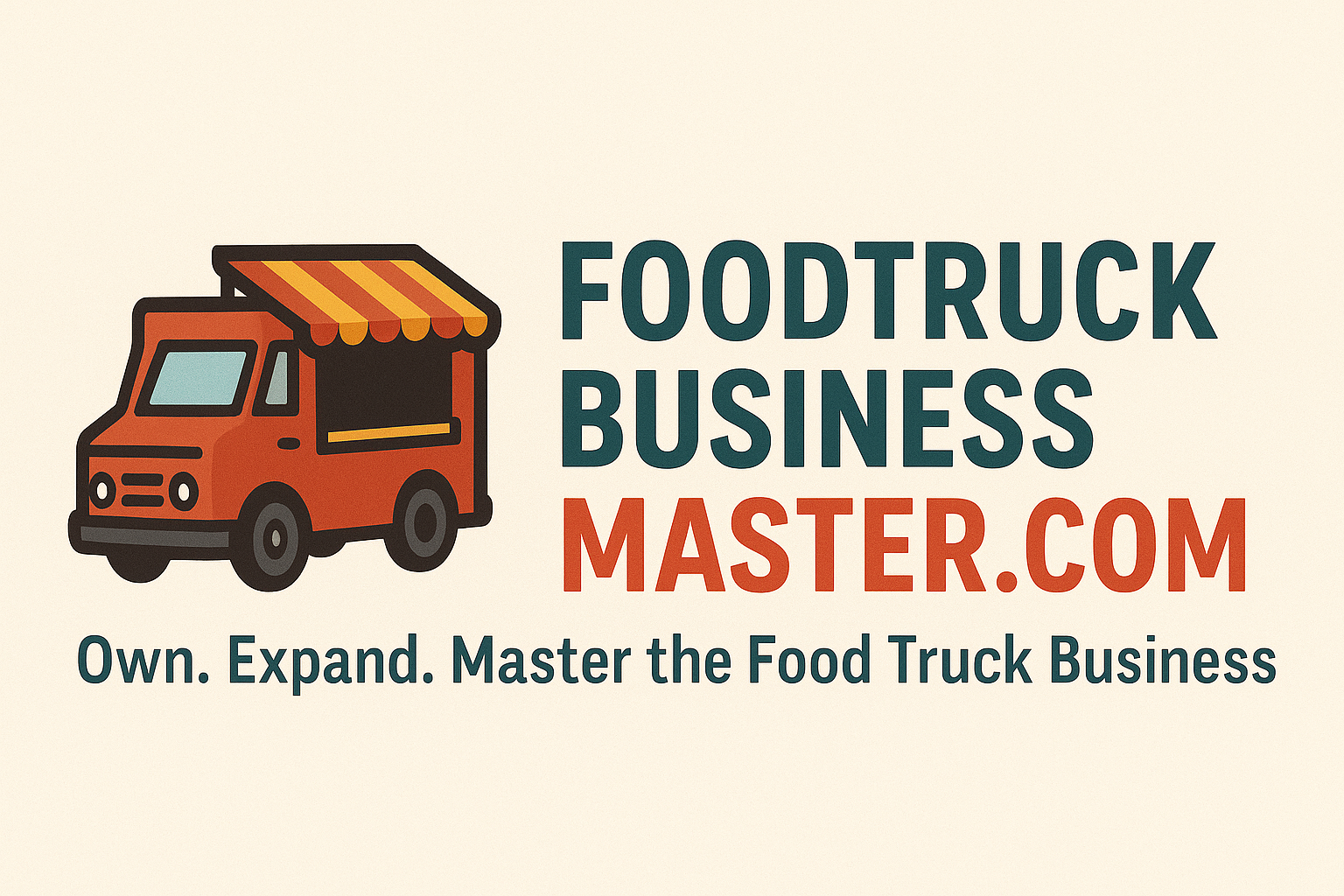
The food truck franchise sector is heating up faster than ever, and the numbers prove it. From shaved ice to gourmet lobster rolls, mobile dining brands are expanding their reach and capturing customers in ways that traditional restaurants—struggling with rising food, labor, and real estate costs—simply cannot match.
Kona Ice: The Market Leader

When Tony Lamb launched Kona Ice in 2007, skeptics dismissed the idea of a mobile shaved ice franchise. Seventeen years later, Kona Ice has become the undisputed heavyweight of the industry.
- 2,000+ trucks nationwide
- $352 million in total sales in 2024
- Sister concepts like Travelin’ Tom’s Coffee (300+ trucks) and Beverly Ann’s Cookies, with more to come
What sets Kona Ice apart? A flat royalty fee of $3,000–$4,000 instead of a sales percentage, plus in-house truck manufacturing. Lamb proudly calls his company the most efficient and largest food truck brand in the world.
Rising Stars: Frios & Cousins Maine Lobster


After Kona Ice, a new wave of brands is scaling fast.
- Frios Gourmet Pops: With 70 mobile units, Frios focuses on corporate and community events rather than just street sales. Franchisees operate colorful “Sweet Rides” stocked with pre-packaged gourmet pops. Investment ranges: $59,000–$101,000.
- Cousins Maine Lobster: Featured on Shark Tank, the brand now has 66 trucks and multiple restaurants. Franchisees experience the lobster’s journey firsthand in Maine before launching. Investment ranges: $193,500–$651,200. Average unit volume? $1.3 million, with top trucks exceeding $3 million.
Franchisees like Yunus and Thameem Shahul, who now operate 24 trucks across multiple states, prove that scaling a multi-unit seafood truck empire is possible—with the right systems and hustle.
Mainstream Brands Testing the Waters
Big restaurant chains are also dipping their toes into food trucks. Taco Bell, Burger King, Auntie Anne’s, and even Chick-fil-A have explored mobile units. Wetzel’s Pretzels has found particular success, with franchisees selling up to 80 pretzels an hour at sports complexes and music venues.
The appeal is clear: food trucks offer low entry costs, reduced overhead, and flexible operations without the burden of long-term leases.
Challenges in the Business
Of course, food trucks aren’t without hurdles. Entrepreneurs face:
- Stringent licensing and compliance requirements
- High insurance costs
- Competition for prime vending spots
As Matt Geller of the National Food Truck Association notes, operating a truck “takes work, systems, and constant adaptability.” Successful owners—from Kona Ice operators in Alabama to Frios franchisees in Texas—emphasize the importance of technology, location strategy, and event bookings in staying profitable.
The Bigger Picture
According to IBISWorld, the U.S. had more than 58,000 licensed food trucks in 2024, a 10.3% increase from the year prior. Average revenues per truck reached $346,000, though performance depends heavily on market, hours of operation, and marketing strategy.
With brands like Kona Ice, Cousins Maine Lobster, and Frios proving the model at scale, the future of food truck franchising looks stronger than ever.
Conclusion: Why Work With FoodTruckBusinessMaster.com
Food truck franchises are no longer a fringe concept—they’re a mainstream, high-growth business model. But while the rewards are great, the challenges are real.
That’s where FoodTruckBusinessMaster.com, powered by Star Brands Consulting Group, makes the difference. We provide entrepreneurs with:
- Expert franchise comparisons
- Real cost and revenue insights
- Step-by-step launch support
- Proven strategies to scale your mobile food empire
Whether you dream of running a single Frios van, a Kona Ice fleet, or building a gourmet seafood empire like Cousins Maine Lobster, we’ll help you navigate the journey from idea to profitability.

Leave a Reply